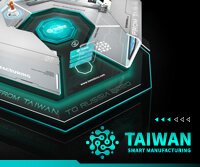
Whether in motor vehicle manufacturing or shipbuilding, in precision engineering or general industry, welding is one of the most important joining processes. To guarantee high-quality joints, the components installed in the welding systems must be durable, have a long service life and withstand the harsh manufacturing environment.
For the last 50 years, FPT Industrie S.p.A. has been manufacturing CNC milling and drilling machines for the general mechanical industry, tool and mould making, as well as for the aerospace industry. Customers can be found on the one hand in Italy, and on the other in the global market. Committed to technology, precision and reliability, FPT began to focus on machines for friction stir welding (FSW) more than a decade ago. The offer also includes its own 4.0 platform and a whole range of positioning and clamping tools.
High-strength and economical joints
The “StirRob” welding robot from FPT works with FSW technology and includes appropriate software and various accessories. A high-speed rotary cutter applies strong pressure during friction stir welding. It creates heat, which makes the two counter pieces malleable. Both materials are mixed in the process and brought into the plastic state. At the end of the process, the welded elements cannot be distinguished. The robot was created in a joint development project with Fanuc and enables the joining of materials such as aluminium, its alloys as well as copper, titanium and steel, which are normally difficult to weld together. In fact, the part on which the joining is done has metallurgical properties that are superior to those of the two raw materials and even withstands bending by 90 deg at the weld seam.
According to Fanuc, the automotive and aviation industries, in particular, benefit from this six-axis robot with FSW welding technology, whereby welding takes place without fumes or radiation. Furthermore, the process requires less energy than conventional welding, thereby reducing costs. The double measuring system integrated in the robot with encoders, which are located both on the motors and on the joints, ensures both the pressure required by the FSW and the desired precision.
Flexible solutions and fast delivery required
To adapt the high-precision, high-rigidity machine to the requirements of the FSW process, torsional energy chains are used on the robot. Here the choice fell on the three-dimensional triflex R energy chain from motion plastics specialist igus GmbH.
When choosing a supplier, Renzo Vezzaro, Senior Sales and Technical Engineer at FPT Industrie, attaches particular importance to product quality, flexible solutions and fast delivery.
“We have been working with igus for 25 years. They give us precise technical support and safe guarantees, which make life easier,” he says. The service life of the energy chain must last at least 20 years for a machine that is in use 24 hours a day, seven days a week. An ergonomic structure is also desirable for the operators in order to reduce the time required for the assembly and disassembly of the energy chains.
A study carried out in co-operation with Refa Consult shows the enhanced time savings through effective design of the energy supply chains and their accessories: the optimal design and structure of energy supply systems can save up to 60 percent of the time per work step and increase productivity.
Еще больше новостей |




